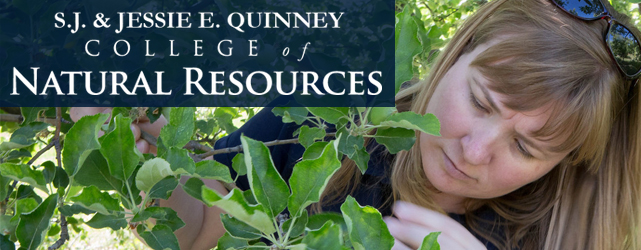Reproductive Biology of Curlleaf Mountain Mahogany, Cercocarpus ledifolius (Rosaceae): Self-Compatibility, Pollen Limitation, and Wind Pollination
Document Type
Article
Journal/Book Title/Conference
Plant Species Biology
Volume
13
Publication Date
1998
First Page
7
Last Page
12
Abstract
Abstract In this study, we explore the reproductive biology of Cercocarpus ledifolius (Rosaceae), a species showing extremely limited recruitment throughout its range in the Intermountain West, USA. We examined (1) self-compatibility, (2)the potential for wind pollination, (3) pollen limitation of seed production, and (4)loss of developing seeds. Through hand-pollination experiments, we determined that C. ledifolius flowers are highly self-compatible. Abundant seeds were produced from flowers pollinated with pollen from the same plant, and the level of seed production did not differ from control outcrossed treatments. Furthermore, we measured substantial airborne pollen loads within C. ledifolius stands, indicating transport of pollen via wind and a strong potential for wind pollination, despite apparent adaptations for insect pollination. Pollen did not limit seed production; branches on which all flowers were handpollinated with outcrossed pollen did not have greater seed production than control branches open only to natural pollination. Lastly, virtually all initiated seeds developed to maturity, indicating low seed abortion rates and minimal loss to pre-dispersal seed predators. Natural levels of fruit production were at or greater than mean fruit production for woody perennials. In summary, we found no evidence that the quantity of pollen, the source of pollen (self vs. outcrossed), or developing seed loss is seriously limiting recruitment of this species.
Recommended Citation
Russell, S.K., E.W. Schupp, and V.J. Tepedino. 1998. Reproductive biology of curlleaf mountain mahogany, Cercocarpus ledifolius (Rosaceae): self-compatibility, pollen limitation, and wind pollination. Plant Species Biology 13: 7–12.





